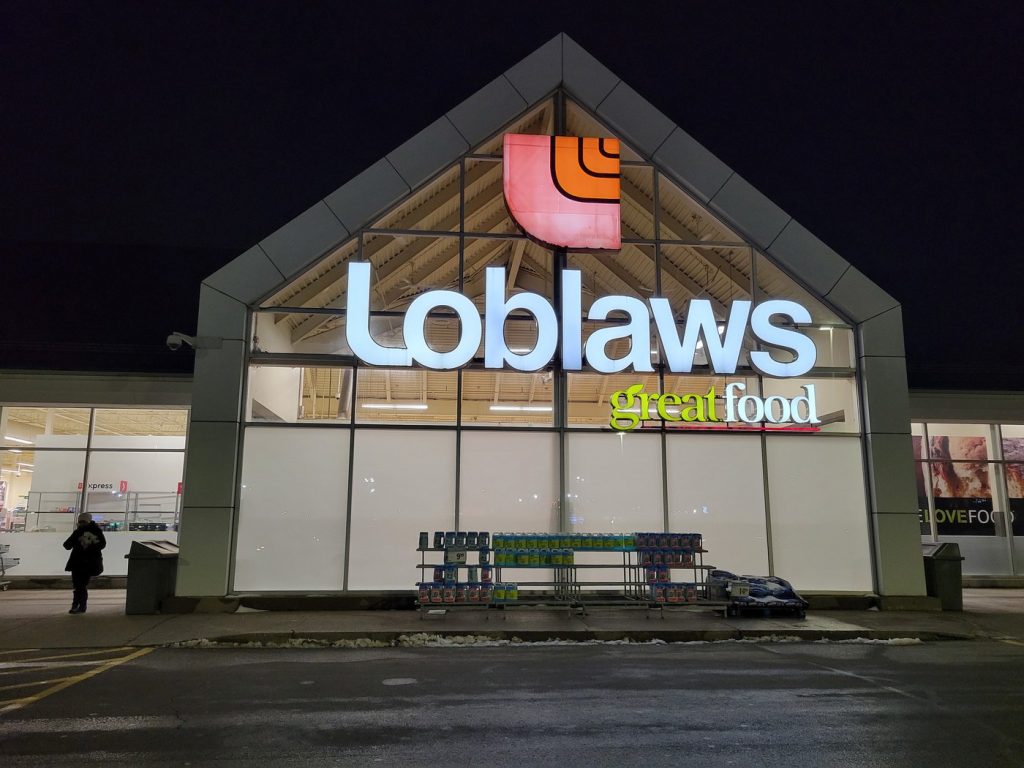Loblaw to open 80 stores in 2025 as part of $10-billion investment over five years

Posted Feb 19, 2025 06:00:05 AM.
Last Updated Feb 19, 2025 03:48:17 PM.
Loblaw says it’s planning to open 80 new grocery and pharmacy stores this year, about 50 of which will be discount grocers.
The company says the new locations are part of an approximately $10 billion investment over the next five years, including $2.2 billion this year.
The plans for 2025 include renovating more than 300 grocery and pharmacy locations.
They also involve modernizing the company’s supply chain, including the initial opening of an East Gwillimbury, Ont. distribution centre that started construction in 2022.
“From opening one of the largest fully automated distribution centres in North America, to introducing dozens of small-format, hard discount stores to communities that need them most, this investment will have a positive impact across the country,” said chief executive Per Bank in a press release.
Loblaw has been at the forefront of the shift to discount shopping over the past few years as Canadians look for ways to mitigate inflation and higher interest rates.
It and the other major grocers have been putting money toward discount stores by opening new locations and converting some existing stores into lower-cost banners.
Loblaw appears to be “reading the room” with this latest announcement, said retail analyst Bruce Winder.
“It … shows sort of where they’re going from a business perspective,” he said.
Inflation sent the price of groceries soaring after the COVID-19 pandemic, and shoppers have responded by seeking more sales and choosing discount banners like No Frills, FreshCo and Food Basics over the other stores owned by the major grocers.
The major grocers have also come under scrutiny in recent years from shoppers and politicians, and have denied accusations that they profited improperly from inflation.
In its 2023 financial year, Loblaw opened 31 new discount stores through conversions or brand-new locations, according to its annual report, divided between its No Frills and Quebec-based Maxi banners.
It also started testing new store formats last year. It opened small No Frills stores and launched a pilot project involving a new banner based on its No Name brand, promising even bigger savings than No Frills.
In recent earnings calls, Metro and Empire executives have said that though discount stores are still beating other banners in terms of sales growth, that gap is starting to narrow as inflation has normalized.
But Winder said despite this, he thinks demand for discounts isn’t going away.
“I do personally think it’s a permanent shift and it’s going to continue to grow,” he said.
Loblaw said in the press release that since 2020, it’s spent more than $8 billion on improving and expanding its store network as well as modernizing its supply chain.
Canadian grocers have been investing in their supply chains with a focus on automation, said Winder.
For example, Metro recently reached the final milestone in a seven-year supply chain project that uses automation to make its operations more efficient.
Loblaw said the renovations will include adding about 100 new pharmacy care clinics to Shoppers Drug Mart locations. The company has been expanding its network of these clinics, which provide assessment and treatment of certain common ailments.
Winder said it’s a timely decision amid struggles with Canada’s healthcare system.
“I think that will be welcomed as more services potentially transfer from doctors to pharmacists,” he said.
This report by The Canadian Press was first published Feb. 19, 2025.
Companies in this story: (TSX:L)
Rosa Saba, The Canadian Press








